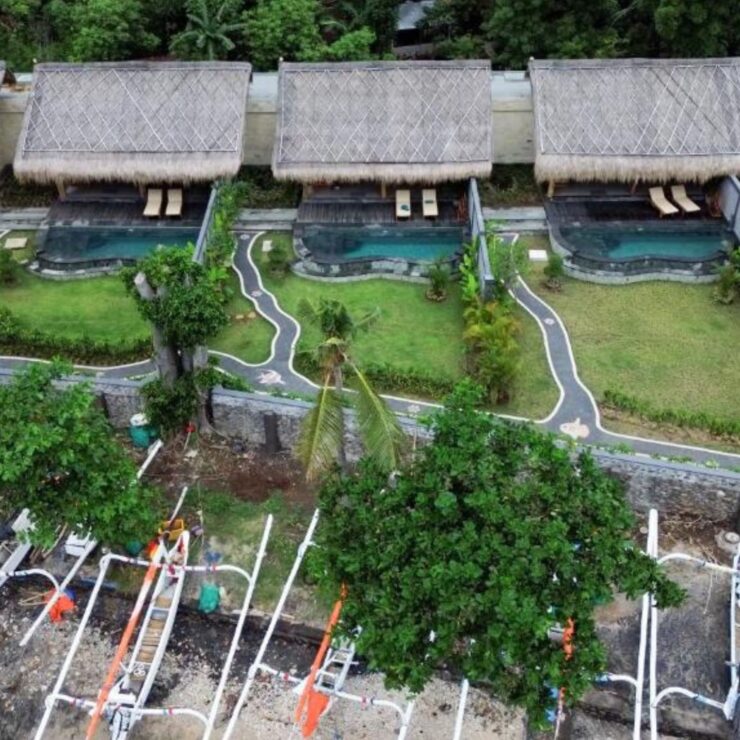Cultural Ceremonies Bali – Bali, an island known for its natural beauty and beaches, is also a rich center of culture and tradition. One very interesting aspect of Balinese culture is its traditional ceremonies. These rituals are not only an integral part of Balinese life but also a major attraction for tourists who want to understand more about Balinese Hindu traditions and beliefs. This article will explore six important Balinese traditional ceremonies and provide insight into how these ceremonies are performed as well as how tourists can experience them.
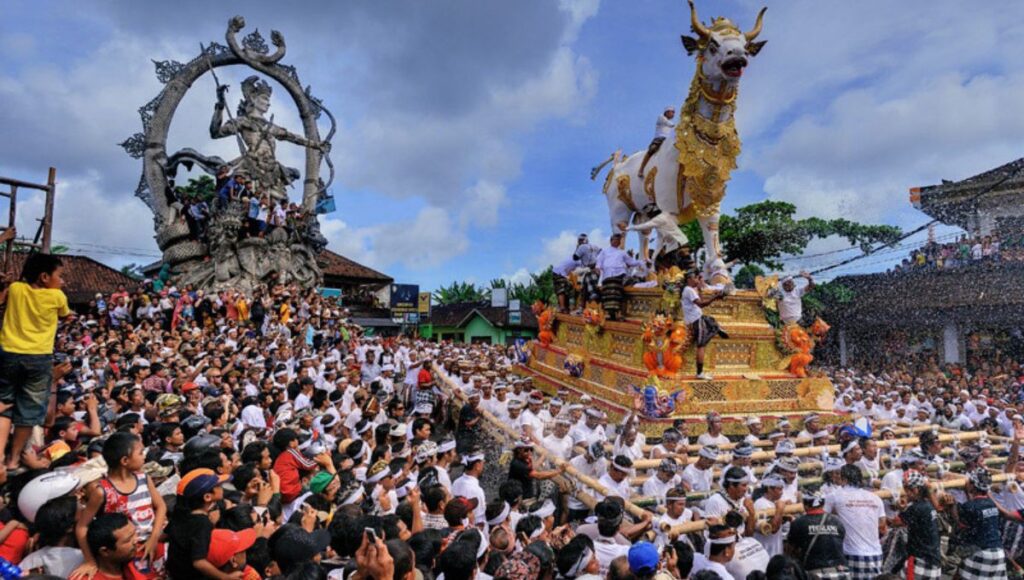
1. Ngaben Ceremony
The Ngaben ceremony (Source Pict: AuthenticityIndonesia), or funeral pyre, is one of the most important rituals in Balinese Hindu culture. It is performed to complete the journey of one’s soul back to the Creator. The Ngaben ceremony can be divided into three types: Ngaben Sawa Wedana, Ngaben Asti Wedana, and Private. Ngaben Sawa Wedana is performed after the body has been temporarily preserved, while Ngaben Asti Wedana is performed after the body has been buried. Private ceremonies are reserved for those who died outside the region or whose bodies were not found.
The high cost of performing Ngaben means that this ceremony is not always possible for all families. To help those less fortunate, traditional and provincial governments often organize mass Ngaben ceremonies. For tourists, attending Ngaben is a rare opportunity to witness one of the most profound aspects of Balinese spirituality, although the frequency and schedule of these ceremonies can vary.
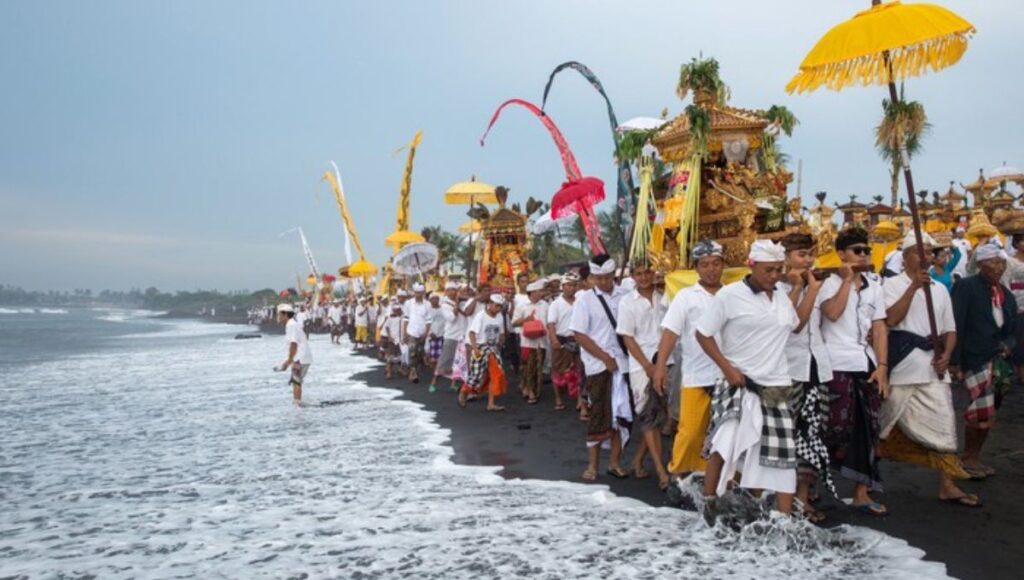
2. Melasti Ceremony
The Melasti ceremony (Source Pict: Wikipedia) is a purification ritual performed for oneself and sacred objects belonging to the temple. In Hinduism, water sources such as the sea, lakes, or springs are considered as tirta amerta, the source of life. In this ceremony, Balinese people flock to the water source wearing white clothes and carrying prayer equipment and sacred objects or statues.
The purpose of the Melasti Ceremony is to increase devotion to the gods and remind people of the importance of preserving the environment. The ceremony is usually performed between 3-4 days before Nyepi celebration, and tourists can plan their visit to stay at hotels around Kuta or Uluwatu to witness this ceremony firsthand.

3. Saraswati Day
Saraswati Day (Source Pict: Wonderfulbali) celebrates knowledge and honors Dewi Saraswati, who is believed to be the giver of knowledge and wisdom. On this day, Balinese Hindus perform a special ceremony to worship Dewi Saraswati by praying for books and scriptures. The ceremony also includes dance performances and story readings that last all night.
The commemoration of Saraswati Day offers an opportunity to witness Balinese culture related to education and science, and to appreciate the important role of education in Balinese society, while also highlighting traditional rituals and ceremonies performed in schools and temples, reflecting the deep reverence for knowledge and wisdom in Balinese culture.
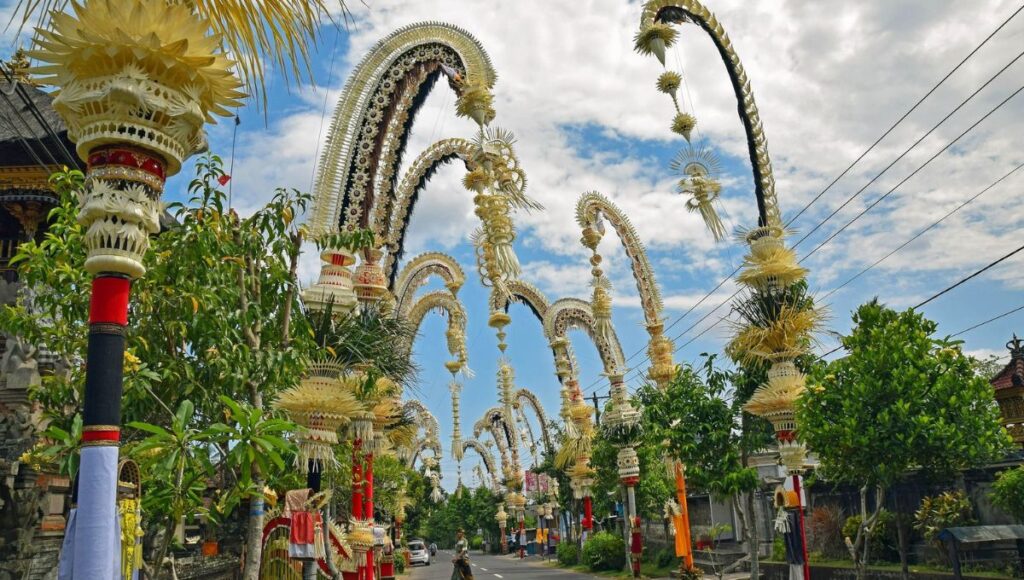
4. Galungan Day
Galungan (Source Pict: Suarapemerintah), which means ‘Win’ in Old Javanese, celebrates the victory against evil and the creation of the universe. The ceremony is held every 210 days according to the Balinese calendar and begins with a series of preparations that last for 25 days. Galungan is also a time to celebrate creation and the balance of nature.
The ceremony provides an in-depth look at how the Balinese celebrate the victory of good over evil and honor the creation of nature. Travelers interested in the cultural and religious aspects of Bali will find that Galungan is an ideal time to witness Bali’s cultural and spiritual richness.
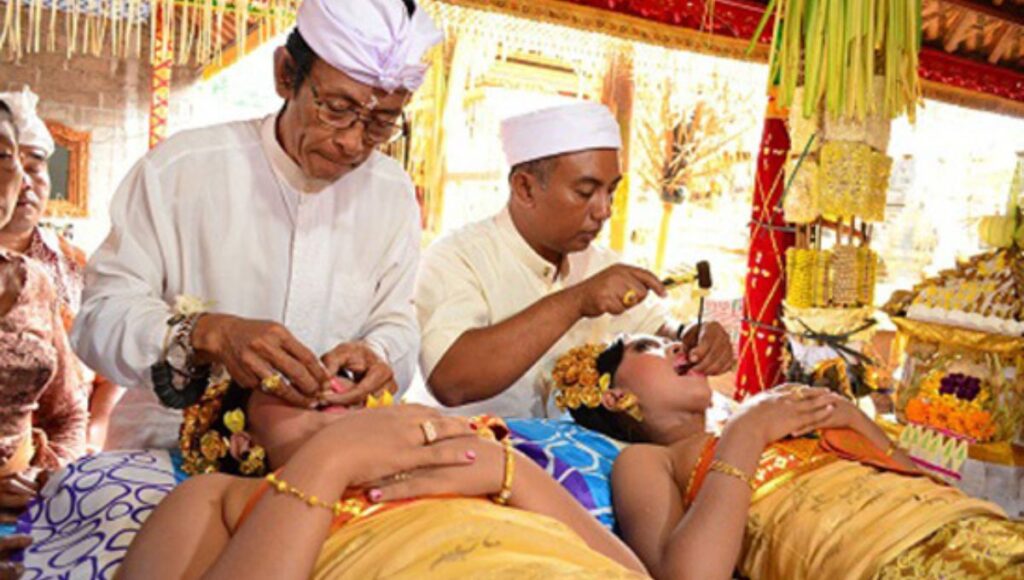
5. Mepandes Ceremony
The Mepandes ceremony (Source Pict: Grandmirage ), also known as Metatah or Mesuguh, is a tooth cutting ritual performed when a child enters adolescence. In this ceremony, the six upper canine teeth of children will be scraped to remove bad passions such as greed, jealousy, and anger.
The ceremony is not only about physical changes but also symbolic in the transition from childhood to adulthood. Mepandes is an important moment in one’s life and is an opportunity for tourists to see the transitional aspect of life in Balinese culture.
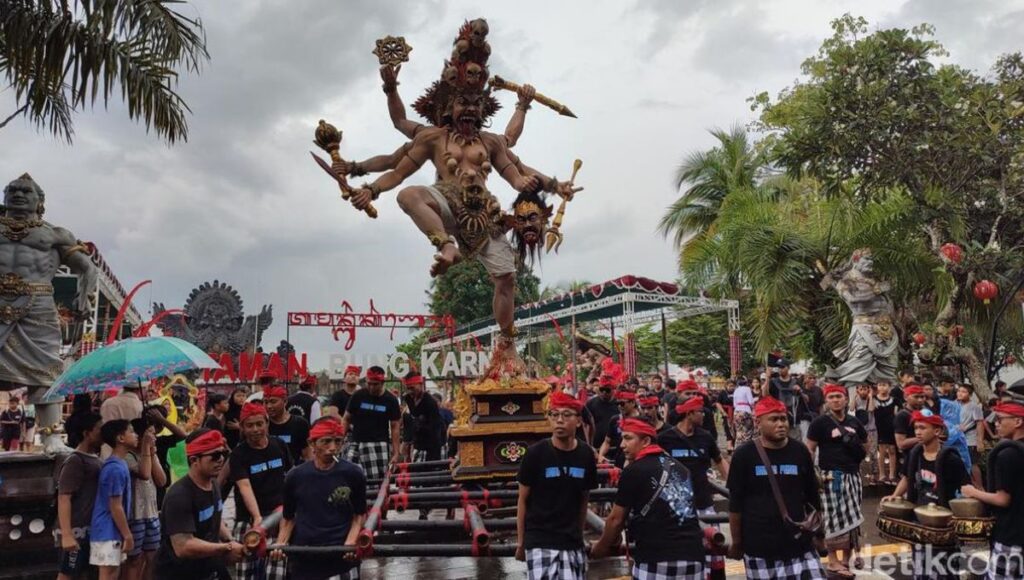
6. Ngerupuk Ceremony
The Ngerupuk ceremony (Source Pict: Shrida) is performed the day before Nyepi and aims to drive away Bhuta Kala, an evil spirit that is considered to disturb human life.
The ritual begins by torching the house, spraying the surrounding area with gunpowder, and making noise by hitting various objects. Ngerupuk is part of the preparation for Nyepi, the Balinese day of seclusion. The ritual creates a lively and colorful atmosphere, giving tourists the opportunity to experience a very different and unique Balinese tradition.
Conclusion: Cultural Ceremonies Bali
Balinese traditional ceremonies are a profound reflection of the island’s culture, beliefs and people’s lives. From the majestic Ngaben to the colorful Ngerupuk, each ceremony offers valuable insight into how Balinese people honor life, death, and their relationship with nature and the gods. For travelers, visiting Bali at these ceremonial times is not only an opportunity to witness awe-inspiring rituals but also to experience firsthand the cultural and spiritual richness that exists on the island. With proper planning, you can experience and appreciate the beauty and depth of Balinese traditions that have been going on for centuries.
To fully immerse yourself in the beauty and traditions of Bali, consider staying at The Abasan Penida, Uma Dawa Resort and Spa Ubud, Anda Amed, or Alu Lofts Umalas. Each of these accommodations offers a unique and comfortable base from which to explore the rich cultural heritage of Bali.
Read more article about Nusa Penida Bali Indonesia:



